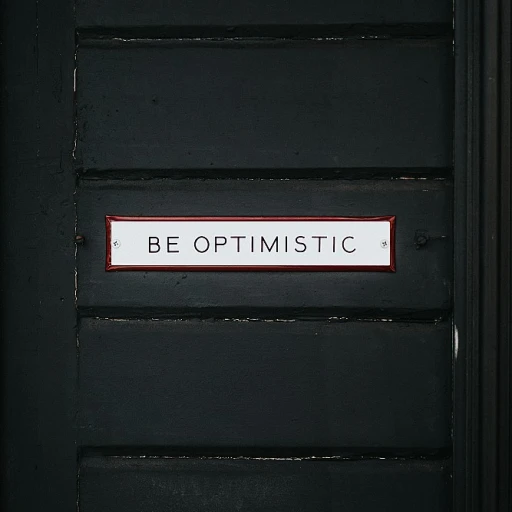The Rise of AI in Human Resources
The Emergence of Artificial Intelligence in HR
The integration of artificial intelligence in human resources represents a seismic shift in how organizations manage their workforce. With the rise of AI technology, HR departments are now equipped to revolutionize their practices, making them more efficient, insightful, and strategic. Gone are the days of relying solely on manual processes and intuition—AI infuses a data-driven approach that empowers HR professionals to make informed decisions.
AI tools and applications offer a myriad of benefits, ranging from streamlining recruitment processes to optimizing employee performance metrics. These technologies are becoming indispensable allies in managing diverse organizational tasks. Moreover, AI is particularly powerful in assisting HR with predictive analytics, helping anticipate and resolve potential human capital challenges before they arise.
The rise of AI in human resources is also paving the way for deeper insights into workforce management. By leveraging data-driven insights (as detailed
here), organizations can identify trends, evaluate employee satisfaction, and measure productivity with unparalleled precision.
As AI continues to develop, its implications for HR are expansive. Later parts of this article will delve deeper into how AI is shaping workforce management strategies, enhancing employee experiences, and transforming HR practices. Transformative real-world applications and success stories further illustrate the broad scope and impact of AI-driven analytics on human resources.
Data-Driven Insights for Workforce Management
Unleashing the Power of Data
In the realm of human resources, the infusion of artificial intelligence has enabled organizations to harness their data like never before. Rather than relying on intuition or traditional methods, companies are increasingly turning to AI for data-driven insights that streamline workforce management.
AI systems ingest and analyze vast amounts of employee and operational data, revealing patterns and trends that may remain elusive through manual analysis. This empowers HR teams to derive actionable insights, leading to more informed decision-making. From recruitment to retention strategies, AI-driven analytics optimize every facet of HR operations, aligning them closely with business objectives.
Turning Complexity into Clarity
One of the most significant advantages of AI in HR analytics is its ability to distill complex datasets into clear, concise narratives. By transforming raw data into visualizations and dashboards, AI offers HR professionals a lucid perspective of organizational dynamics.
Moreover, AI tools provide predictive foresight, helping organizations foresee potential challenges, such as high employee turnover or skill gaps. By anticipating these issues, companies can proactively develop strategies to mitigate their impact, ensuring a robust and resilient workforce.
As HR departments continue to embrace AI, the role of human resources transforms, creating a more analytical and strategic function that serves as a vital cornerstone for organizational success.
Enhancing Employee Experience with AI
Revolutionizing Employee Engagement Through AI
In the evolving landscape of human resources, artificial intelligence is not just about numbers and analytics; it's also about enhancing the overall employee experience. As highlighted earlier, AI is transforming HR practices by providing data-driven insights that enable more informed decision-making. But how exactly does AI contribute to a better workplace environment?
AI-driven platforms are now capable of personalizing employee interactions and tailoring experiences to individual needs. For instance, AI can analyze employee feedback and sentiment data to identify areas where the workplace environment can be improved. This allows HR teams to proactively address issues before they escalate, fostering a more positive and productive work culture.
Moreover, AI is instrumental in streamlining routine HR tasks, such as onboarding and training, making these processes more efficient and engaging. By automating repetitive tasks, HR professionals can focus more on strategic initiatives that enhance employee satisfaction and retention. AI's ability to provide real-time feedback and support also plays a crucial role in keeping employees motivated and aligned with organizational goals.
For those interested in how AI is transforming not just HR but also other sectors, such as tax preparation and assistance, you can explore more on the AI-driven transformation in tax services.
Predictive Analytics for Talent Management
Predictive Models for Talent Acquisition and Retention
In the expanding universe of AI and human resources, predictive analytics emerges as a cornerstone for talent management. By harnessing advanced machine learning algorithms, HR teams can anticipate workforce trends, allowing organizations to make proactive decisions rather than reactive ones. This approach not only helps in identifying potential leaders and high performers but also pinpoints areas where hiring might be necessary, long before a crisis hits.
One of the most impactful applications of predictive analytics is in talent acquisition. Organizations are now able to streamline their recruitment processes by predicting which candidates are most likely to succeed and remain with the company for the long term. This goes beyond traditional metrics and dives into comprehensive data analysis, examining numerous variables like past employment patterns, social media activity, and even external factors like market trends.
Similarly, retaining talent becomes significantly easier when predictive models are employed. By analyzing employee engagement scores, feedback, and productivity metrics, AI can forecast which employees are at risk of leaving. This allows HR professionals to implement targeted interventions, fostering a nurturing environment that addresses employee needs before they decide to leave.
Moreover, predictive analytics can transform succession planning into a strategic advantage. By identifying and nurturing talent within, organizations ensure they're not only filling positions but are prepared with skilled individuals ready to step up to leadership roles when needed. This level of preparedness and foresight ensures business continuity and growth, reducing the risks associated with unexpected departures or emergencies.
While predictive analytics is indeed transforming how HR departments manage talent, it's vital that organizations remain ethical and transparent in their use of AI-driven insights. By prioritizing data privacy and employee trust, companies can leverage these sophisticated tools to their greatest advantage without sacrificing their values.
Revolutionizing HR Practices with Innovative AI Tools
In the evolving landscape of human resources, AI tools are unprecedented game-changers, fundamentally altering how HR functions operate. As we've discussed earlier, the integration of AI into HR offers data-driven insights that are invaluable for workforce management and enhancing the employee experience. Now, let's delve into how specific AI tools are transforming traditional HR practices, making them more efficient and effective.
One of the most impactful uses of AI in HR is in the realm of recruitment. AI-powered applicant tracking systems (ATS) streamline the recruitment process by leveraging machine learning algorithms to shortlist candidates, thus saving HR teams hours of manual screening. These systems can even predict candidate success rates, helping organizations make informed hiring decisions.
Furthermore, AI chatbots are redefining HR communication. These intelligent bots proficiently handle employee queries, provide instant assistance, and conduct preliminary interviews. This ensures that HR staff can focus on strategic tasks rather than spending time on repetitive inquiries.
Performance management has also seen significant advancements with AI. Predictive analytics tools help anticipate employee challenges and performance trends, allowing HR to implement proactive measures to maintain productivity. These insights are crucial in developing personalized development plans that contribute to a more engaged workforce.
Additionally, AI-driven training platforms offer personalized learning experiences, adapting content to individual learning paces and preferences. This tailored approach not only enhances employee skills but also boosts overall job satisfaction, as employees feel supported in their professional development.
As AI technologies continue to evolve, the possibilities for transforming HR practices are endless. Embracing these tools can lead to more strategic decision-making, reduced costs, and, ultimately, a more agile and competitive organization. The real-world applications of these AI innovations underscore their potential to revolutionize the HR industry.
Real-World Applications and Success Stories
Groundbreaking Examples of AI Impact in HR
As we continue to explore the innovative landscape of AI in human resources, it's crucial to highlight the real-world applications and success stories that showcase the transformational power of AI-driven HR analytics. Organizations across various industries are leveraging these technologies to enhance decision-making capabilities and address HR challenges more effectively.
One notable example is Unilever's use of AI to streamline their recruitment process. By incorporating machine learning algorithms to screen resumes and conduct initial interviews through chatbots, Unilever significantly reduced the time-to-hire and enhanced candidate experience. This AI-driven approach not only ensures a fair and unbiased selection process but also allows HR professionals to focus on high-value tasks.
IBM Watson has similarly revolutionized talent acquisition with its AI capabilities. By integrating Watson into their HR processes, companies are equipped to analyze employee data and provide personalized learning recommendations, aiding in career development and talent retention strategies. This aligns with the data-driven insights discussed earlier, showcasing how predictive analytics can be pivotal in talent management.
In the field of performance management, Accenture provides a compelling example. They've integrated AI tools to offer real-time feedback and performance insights. By analyzing a vast array of employee data points, the software can deliver actionable feedback, enabling employees to make timely improvements and enhancing overall productivity.
Moreover, Vodafone has harnessed AI to enhance employee engagement and satisfaction. Using sentiment analysis techniques, they assess employee feedback in real-time, allowing the HR team to promptly address concerns and improve workplace dynamics. This proactive approach has not only boosted morale but has also led to increased retention rates across the company.
These success stories exemplify the significant impact that AI can have in various HR functions. Organizations are strategically leveraging AI tools and predictive analytics to drive efficiency, improve employee experiences, and create data-informed HR strategies, setting a new standard for HR practices worldwide.






